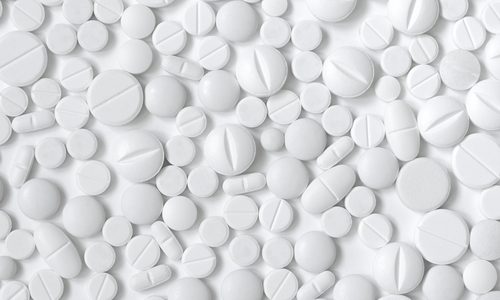Drug Disposal Systems Keywords
July 25, 2022 | Pharmaceutical Waste Disposal

Terms To Know
Rx Destroyer™ not only provides education to our customers on products and services along but industry best practices as well. All industries that use pharmaceutical (drug) disposal have an established set of keywords and language that are commonly used. Below is a comprehensive list of niche keywords often used in relation to drug disposal.
Absorption: When a compound chemically attaches to the surface of another substance, making it chemically retrievable.
Activated Carbon: Activated carbon, also called activated charcoal, is a form of carbon commonly used to filter contaminants from water and air, among many other uses. It is processed to have small, low-volume pores that increase the surface area available for adsorption or chemical reactions.
Adsorption: When a compound breaks down and chemically attaches to another substance, in this case carbon, changing the make-up of the original compound.
Carbon: Carbon is a chemical element with the symbol C and atomic number 6. It is nonmetallic and tetravalent, making four electrons available to form covalent chemical bonds.
Chemical Digestion: The use of water and digestive enzymes to break down complex molecules.
Controlled Substance: A drug or other substance that is tightly controlled by the government because it may be abused or cause addiction.
DEA: Drug Enforcement Administration.
Deactivating: To deprive of chemical activity.
DEA Registrants: Registered representatives in a healthcare organization who are required to comply with DEA regulations for narcotics.
Denaturing: Destroying the characteristic properties of a protein or other biological macromolecule by heat, acidity, or other effects that disrupt its molecular conformation.
Diversion: Theft; the illicit use of a controlled substance for a purpose other than which was intended by its prescriber.
Dry Carbon: An unactivated carbon that must have liquid additives in order to begin breaking down pharmaceuticals. Adding water leads to a thermal reaction occurring in the dry carbon. Dry carbon is considered a fire hazard by OSHA.
End User: The person who is going to be disposing of the pharmaceuticals without DEA regulation applying.
EPA: Environmental Protection Agency.
Hazardous Waste: Waste material that is potentially damaging to the environment and harmful to humans and other organisms.
Neutralize: To counterbalance or counteract the effect of; render ineffective.
Non-Hazardous: Substances that are neither corrosive, toxic, ignitable, or reactive with other substances.
Non-regulated: Drugs not managed by the government.
Non-retrievable: The DEA Standard of pharmaceutical disposal as dictated in 21 CFR. The pharmaceutical being disposed of must be chemically digested or incinerated. A substance is considered “non-retrievable” when it cannot be transformed to a physical or chemical condition or state as a controlled substance or controlled substance analogue.
OSHA: Occupational Safety and Health Administration.
RCRA: Resource Conservation and Recovery Act.
Regulated: Drugs managed by the federal government following the guidelines of 49 CFR Part 40.
Rendering Inert: To reduce to a state of neutrality.
Schedule I: Schedule I drugs, substances, or chemicals are defined as drugs with no currently accepted medical use and a high potential for abuse.
Schedule II: Schedule II drugs, substances, or chemicals are defined as drugs with a high potential for abuse, with use potentially leading to severe psychological or physical dependence.
Schedule III: Schedule III drugs, substances, or chemicals are defined as drugs with a moderate to low potential for physical and psychological dependence.
Schedule IV: Schedule IV drugs, substances, or chemicals are defined as drugs with a low potential for abuse and low risk of dependence.
Schedule V: Schedule V drugs, substances, or chemicals are defined as drugs with lower potential for abuse than Schedule IV and consist of preparations containing limited quantities of certain narcotics.
Stockpiling: The illegal act of holding onto pharmaceuticals without disposing of them properly.
Ultimate User: A person who has lawfully obtained or possesses a controlled substance.
Waste Haulers: a person or contractor that collects waste from a generator and transports and discharges it at an off-site waste management facility on a commercial basis.
Waste Segregation: The sorting and separation of waste types to facilitate recycling and correct onward disposal.
Witness Log: Management practice for unused pharmaceuticals at health care facilities.
Rx Destroyer™ offers convenient products that quickly neutralize medications with chemical digestion to meet DEA regulations, along with educating our customers with industry best practices.
Looking for a term not provided on this list? Ask Our Pharmacist!

